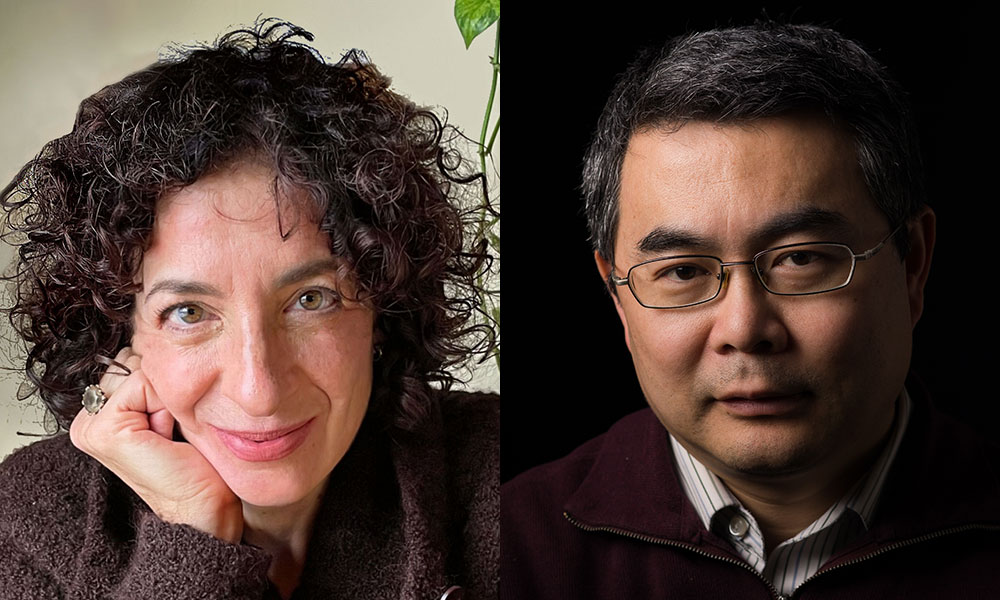Art historian and computer scientist earn inaugural Debra Haring Excellence in Research Awards
An art historian and a computer scientist have been named the recipients of the inaugural Debra Haring Excellence in Research Award.

An art historian and a computer scientist have been named the recipients of the inaugural Debra Haring Excellence in Research Award.
The award memorializes the late Haring, a former assistant dean for grants and contracts who worked tirelessly to advance the research of faculty in the School of Arts & Sciences and the Hajim School of Engineering & Applied Sciences before her death in 2022.
The honor recognizes one faculty member from each school whose research has had a transformational impact on their field, or whose body of work has changed their field in positive ways.
The recipients of the distinction, Rachel Haidu, an associate professor of art history, and Jiebo Luo, a professor of computer science and the Albert Arendt Professor of Engineering, were selected for their accumulated bodies of research.
Haidu’s research encompasses a wide range of post-World War II artists and mediums and has altered longstanding and underexamined assumptions within visual studies and art history.
Her colleagues remark that Haidu’s work has pushed the study of contemporary art by introducing new concepts for art historical analysis by way of shapes, characters, and roles. The say her approach has inspired them to think differently about traditional art historical terms, such as "figuration" and "abstraction."
Much of her research culminated in her recently published book Each One Another: The Self in Contemporary Art (University of Chicago Press, 2023).
“Haidu’s work seeks to push past pedestrian paradigms, to attempt to grasp the messier inflections and historical contingencies of selfhood as it surfaces in contemporary aesthetics,” wrote Allen Topolski, the chair of the Department of Art and Art History, in his nomination letter for Haidu.
Luo’s research spans computer vision, natural language processing, machine learning, data mining, computational social science, and digital health. A prolific scholar, Luo has authored or co-authored 6 books, 9 book chapters, nearly 200 journal articles, and more than 400 refereed conference publications.
His colleagues say that Luo’s work is transforming our understanding of the modern world, particularly Internet culture. Noteworthy recent publications have used artificial intelligence to study millions of headlines across the political spectrum for representation and bias, analyze COVID-19 vaccine misinformation on social media, and explore public responses on Twitter to the #StopAsianHate movement.
“While many engineers—computer scientists among them—pursue technology transfer, using technology to change the world, Jiebo exemplifies a much more unusual pursuit: the use of technology to understand the world in ways not previously possible,” says Michael Scott, the Arthur Gould Yates Professor of Engineering, in his nomination letter. “Such understanding can open the door to mitigations that transcend the technical, guiding us in social, organizational, political, or artistic ventures to make the world ever better.”
Dean for Research in Arts & Sciences and Engineering John Tarduno said the award serves to highlight some of the outstanding research of faculty and to celebrate the importance of their work in changing lives.
“Debra’s legacy is evident every day in the research accomplishments of our faculty, in the success of our research funding, and in the interdisciplinary connections that have been made among faculty,” Tarduno wrote to deans and department chairs in soliciting nominations for the award in October 2023.
“This award will ensure that Debra’s legacy, her strong work ethic, her intelligence, her humor and her kindness, live on for generations to come.”
